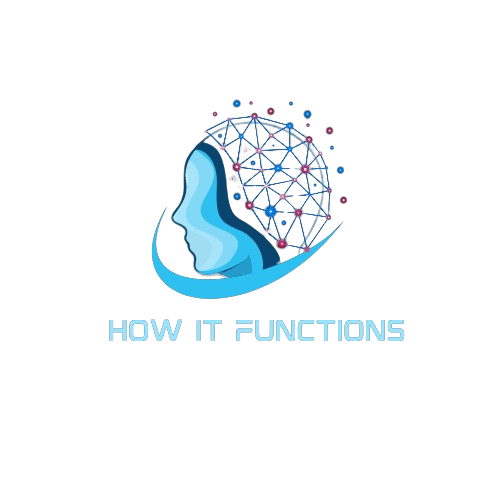Navigating adult relationships can be a complex and challenging journey. Learning how to be an adult in relationships requires a deep understanding of oneself and others, as well as the ability to communicate effectively and handle conflicts with maturity. This essential skill set forms the foundation for building lasting, fulfilling connections with partners, friends, and family members.
This article explores key principles to help individuals develop into emotionally intelligent adults in their relationships. It delves into overcoming ego-driven behaviors, nurturing love through mindful presence, and navigating conflicts with empathy and understanding. By applying these concepts, readers can enhance their self-reflection, cultivate gratitude, and foster a positive attitude in their interactions with others, ultimately leading to more meaningful and satisfying relationships.
Overcoming Ego-Driven Behaviors in Relationships
Identifying ego-based reactions
In relationships, ego-driven behaviors often manifest as argumentative, defensive, or controlling actions. These reactions stem from a desire to protect one’s self-image and can lead to harmful patterns. Individuals may find themselves constantly seeking to prove their worth through their reactions, engaging in criticism, contempt, or stonewalling. Recognizing these behaviors is the first step to overcoming them.
Letting go of the need to be right
One of the most significant ego-driven behaviors in relationships is the inordinate desire to be right all the time. This often results in paying little attention to a partner’s feelings and opinions. To address this, individuals should remind themselves that they are in a partnership where both parties have an equal say. Actively seeking out a partner’s opinion and being willing to compromise are essential steps to move away from ego-driven reactions.
Practicing humility and empathy
Developing humility and empathy is crucial to overcoming ego-driven behaviors. This involves acknowledging one’s limitations, accepting that mistakes can become valuable life lessons, and cultivating gratitude. Practicing mindfulness has an influence on increasing conscious awareness, allowing individuals to slow down and acknowledge present thoughts and emotions without judgment. By listening to others in a curious, non-judgmental manner, people can embrace their own humanity while recognizing it in others.
Nurturing Love Through Mindful Presence
Being fully present with your partner
Presence in relationships has a significant impact on fostering a healthy union. It involves being fully aware and providing unconditional, undivided attention to a loved one. This level of engagement allows for a deeper and more meaningful connection, enabling partners to truly listen, understand, and empathize with each other’s thoughts, feelings, and needs. By creating a space of trust and vulnerability, couples can cultivate emotional closeness and strengthen their bond.
Cultivating gratitude and appreciation
Practicing gratitude plays a crucial role in nurturing love. It involves showing appreciation for what is meaningful and valuable in the relationship. Gratitude has been found to focus attention on the positive aspects of partnerships, motivating individuals to express their appreciation more frequently. This, in turn, creates a cycle of connection and affection. Studies have shown that couples who express more gratitude spend significantly more time together and engage in spontaneous expressions of affection.
Practicing loving-kindness
Loving-kindness meditation is an effective way to cultivate self-love and compassion, which can then be extended to others. This practice involves repeating phrases such as “May I be safe, happy, healthy, and live with ease” to oneself, and then extending these wishes to loved ones, difficult relationships, and eventually all beings. By nurturing self-love and compassion, individuals become better equipped to reflect these qualities onto their partners and strengthen their relationships.
Navigating Conflict with Emotional Intelligence
Understanding triggers and past influences
Emotional triggers play a significant role in relationship conflicts. These stimuli or experiences activate intense emotional responses, often rooted in past traumas or negative experiences. When triggered, individuals may react with heightened emotions such as anger, fear, or anxiety, influencing their thoughts and behaviors. Recognizing personal emotional triggers requires self-reflection and introspection, involving the identification of patterns, situations, or specific stimuli that consistently evoke intense emotional responses.
Using ‘I’ statements
Employing “I” statements, also known as assertiveness statements, has an influence on effectively communicating concerns, feelings, and needs in a manner that is easier for the listener to understand. This approach focuses on one’s own feelings and experiences rather than criticizing or blaming others. By expressing oneself without attacking or provoking defensiveness, individuals create more opportunities for constructive dialogue and conflict resolution.
Finding win-win solutions
To navigate conflicts successfully, it is crucial to adopt a win-win posture. This approach involves committing to finding solutions that work equally for both parties. Each individual should remain motivated and open to change, avoiding a scenario where one side wins while the other loses. By practicing purposeful listening and synergistic brainstorming, couples can progress toward identifying workable resolutions that satisfy both partners’ needs and values.
Conclusion
Mastering adult relationships requires a blend of self-awareness, empathy, and effective communication. By overcoming ego-driven behaviors, nurturing love through mindful presence, and navigating conflicts with emotional intelligence, individuals can build stronger, more fulfilling connections. These skills have an influence on creating a foundation for lasting partnerships based on mutual understanding and respect.
To grow in relationships, it’s crucial to practice self-reflection, cultivate gratitude, and maintain a positive attitude. By applying these principles, people can enhance their emotional intelligence and create more meaningful interactions with partners, friends, and family members. In the end, being an adult in relationships is an ongoing journey of personal growth and mutual support, leading to more satisfying and resilient connections.
Also Read: How to Return a Gift on Amazon
FAQs
What are the five key principles for being an adult in relationships?
According to David Richo’s book ‘How to be an Adult in Relationships’, the five essential elements for healthy relationships are attention, acceptance, appreciation, affection, and allowing.
What are the main points of being an adult in relationships?
The main points include giving and receiving attention, acceptance, appreciation, affection, and allowing others to be themselves. These elements are vital not only for personal development and self-esteem but also for cultivating strong relationships in adulthood.
What is the key to a successful adult relationship?
The key to a successful adult relationship, as highlighted by David Richo, involves the five principles of attention, acceptance, appreciation, affection, and allowing. These principles help unlock deeper connections and enrich human relationships.
How should one conduct themselves in a relationship to be considered an adult?
To behave like an adult in a relationship, one should engage actively by giving full attention, showing acceptance of the other’s identity and choices, expressing appreciation, offering affection, and allowing the other person the freedom to be themselves.





One Comment